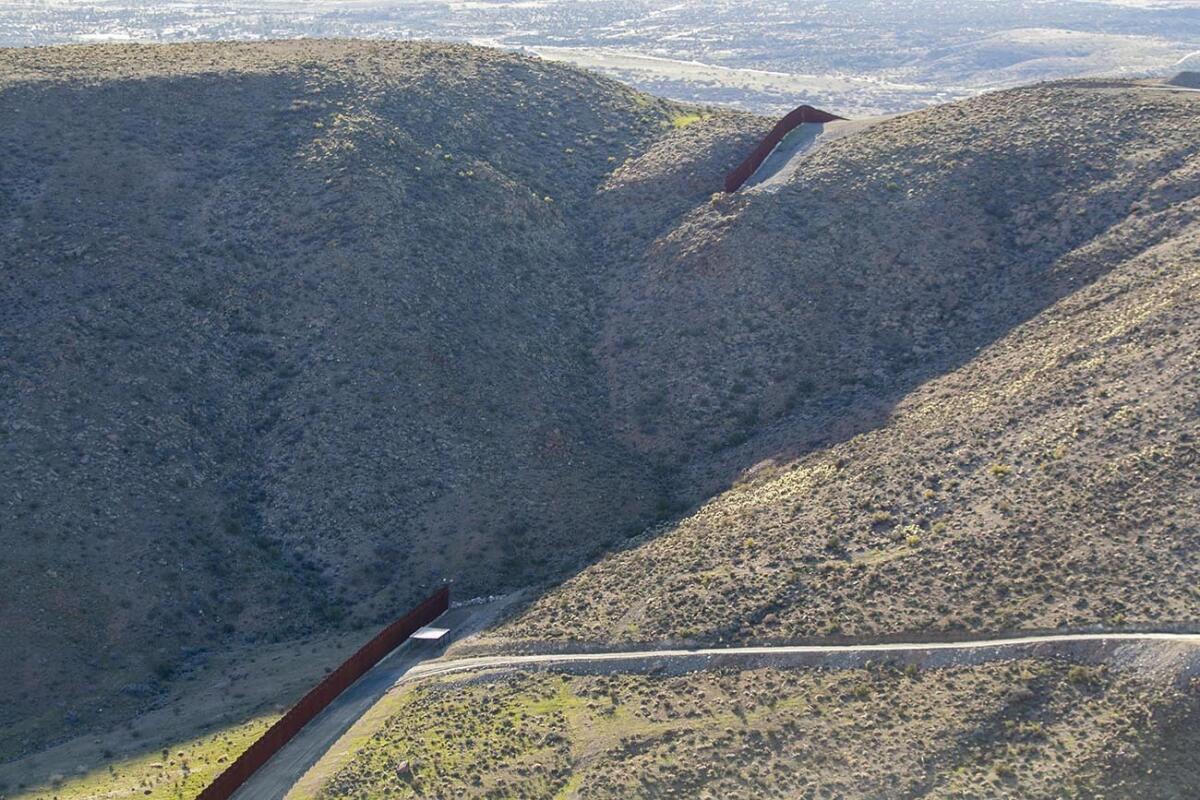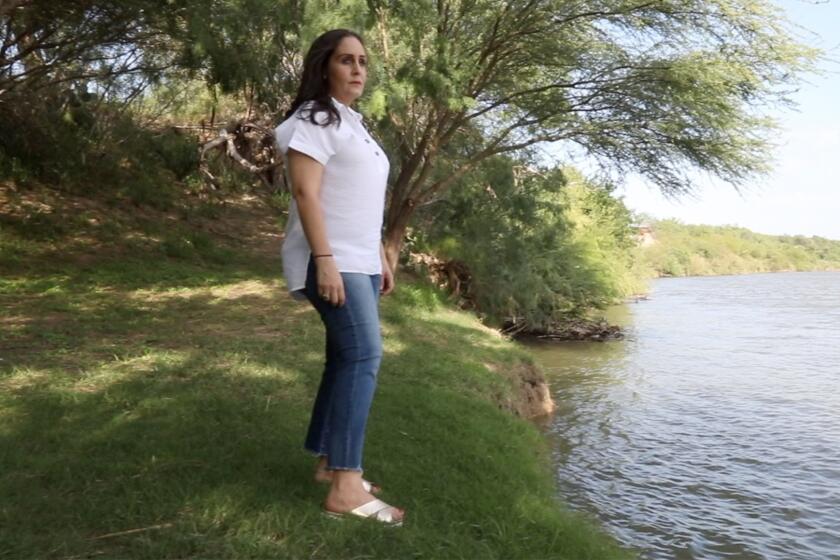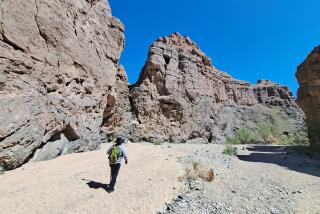Kumeyaay tribe blocks border wall construction on native burial grounds

- Share via
Members and allies of the Kumeyaay Nation in Campo blocked construction of the border wall on Monday by standing in front of an area where pre-construction blasting was scheduled to take place, according to a member of the group and the U.S. Border Patrol.
Community members sang and chanted peacefully to express their concerns about explosives that needed to be detonated to blast away portions of the old border fence, video shot by participants showed.
Construction contractors working for the U.S. Army Corps of Engineers were scheduled to begin Monday, blasting the old portions of the border fence to clear the way for the construction of new sections of the border wall, a project championed by the Trump administration.
The planned construction area is located along the U.S.-Mexico border in far east San Diego County, about 75 miles from the city of San Diego.
“The community members were asked to move away from the project for their safety,” said Jeff Stephenson, the supervisory agent for the San Diego sector of the Border Patrol. “Out of caution, Monday’s scheduled blasting was postponed, and we are working with the construction contractor to reschedule.”
The Kumeyaay tribe, native to the region that spans both sides of the border in San Diego County and northern Baja California, says “igniting explosives will disturb and desecrate ancestral burial grounds and artifacts in the area.”
Stephenson said prior environmental surveys showed no biological, cultural or historical sites were identified within the blasting area located on a small strip of land along the border that he says is owned by the federal government.
In Arizona and Texas, border wall construction has sped up over the objections of residents and environmentalists
Members of the Kumeyaay tribe strongly disagree and say they will continue to resist the blasting.
“It would be just about as disrespectful as us going into Arlington cemetery and setting off explosions,” said a member of the tribe who asked not to be identified.
Border Patrol said it would try again soon to clear old fence sections.
“CBP has a cultural monitor present at the construction site to ensure that if any previously unidentified culturally sensitive artifacts are observed within the project area that construction is halted and the appropriate stakeholders are notified to include tribal nations,” Stephenson said.
The people who gathered in front of the border fence called the postponement of construction only a “temporary victory,” but promised to return the next time the explosions were scheduled to take place.
Amid the coronavirus pandemic and his reelection campaign, President Trump has accelerated border wall construction and reiterated his promise to complete 450 miles of new border wall along the 1,954-mile U.S.-Mexico border by the end of 2020, The Times reported this week.
Fry writes for the San Diego Union-Tribune.
More to Read
Sign up for Essential California
The most important California stories and recommendations in your inbox every morning.
You may occasionally receive promotional content from the Los Angeles Times.












